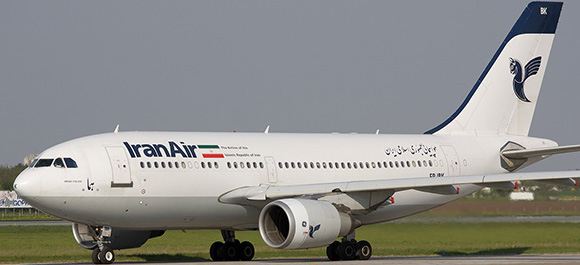PHOTO: Iran Air will get Airbus planes after lifting of sanctions, but who else is benefiting?
Thomas Erdbrink writes for The New York Times:
Only weeks into what was widely anticipated to be a helter-skelter, post-sanctions rush of Western money and expertise into Iran, limits to the country’s opening are beginning to emerge as the conservative leadership seeks to limit the reach of Western influences.
Behind the headlines announcing big business contracts with European companies it is becoming increasingly clear that, so far, the only deals being struck have been with the state-backed conglomerates. These are the groups that dominate major industrial and commercial sectors of the Iranian economy and are tightly controlled by pension funds and investment companies linked to state organizations, like the Revolutionary Guards.
As a result, little or nothing is trickling down to the lower levels of Iran’s beleaguered but still enormous private sector. “We have a conflict of interest with the government,” said Bahman Esghi, the secretary general of the Tehran Chamber of Commerce. “Because they have outgrown all their competitors.”
All the major international deals signed in recent weeks have involved state or semistate-backed industries. The national carrier, Iran Air, signed a deal to buy more than 100 planes from Airbus. The Iranian Mines and Mining Industries Development and Renovation Organization, one of the largest state entities, started a $2 billion joint venture with an Italian steel producer, Danieli. PSA Peugeot Citroën of France will invest $439 million in carmaker Iran Khodro.
But when smaller private businesses reach out to their foreign counterparts the response they get is still: how will you pay? Nuclear sanctions might be lifted but almost all international banks continue to shy away from the Iranian market because of unilateral American regulations that label Iran as a state sponsor of terror.
“We are not getting any credit, inside or outside of the country, we can’t make transfers and the government has other priorities,” Mr. Esghi said. Next week Mr. Esghi, the public face of the largest private business ownership organization in the country, will be shutting down his own business, a bus factory, and sending his remaining 14 employees home. The reason, he said, is that there is no work and no prospect of any, even after the lifting of sanctions.
“I’ll be the unemployed secretary general of the Tehran Chamber of Commerce,” he said. “Ironic, isn’t it?”
The lifting of the sanctions, Mr. Esghi said, will have some positive effects for those in the private sector who manage to get their hands on some of the money coming in. “But mainly, it seems, the government is getting fatter and fatter,” he said.
Big Firms Maintain Tight Grip
President Hassan Rouhani on Tuesday repeated the government’s aim of achieving 8% growth this year, not an unreasonable goal given the influx of frozen assets and the enormous investment needed for Iran to modernize facilities grown decrepit after years of sanctions. But to achieve such growth levels, experts here say, particularly in an era of low oil prices, would require an easing of financial strictures that Iran’s conservative leaders show no signs of tolerating.
Some analysts say the state-backed conglomerates are the only entities able to handle the $50 billion or so in annual investment that the country needs.
“Our bigger companies are our top priority,” said Amin Amanzadeh, a financial reporter for several Iranian newspapers. “They are the only ones who can handle foreign investment. Also, if they improve the whole economy will.”
But critics of the quasi-socialist conglomerate system dismiss such claims, saying it is notoriously corrupt and inefficient. More likely, they say, the conservative leadership’s overriding aim is to keep Western influence in the economy and society to a minimum.
Iran’s hard-line factions do not dispute the point. “Investments through our big enterprises can be controlled,” said Hamidreza Taraghi, an analyst who is close to Iran’s leaders. Really opening up the country, in the way some emerging-market countries have, is out of the question, he said.

